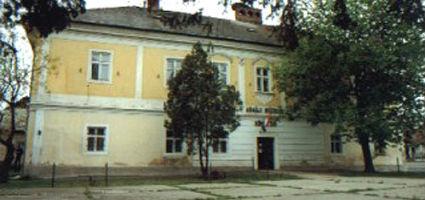2025. July 19. Saturday
Abaúj Museum - Forró
 |
Address: 3849, Forró Szent Imre tér 3.
E-mail: abaujmuz@hermuz.hu
Opening hours: 15.04-15.10.: Tue-Sun 9-16
On prior notice: beyond the opening hours as well |
The institution, which functions in the building of the "Crock Inn", was established in 1985. The collection and researching activities of the institute serves the region of Borsod-Abaúj-Zemplén county. Because of the good relations with the East-Slovakian Museum and the Slovakian archives, the research work is also extended to the Northern half of the historical Abaúj county.
The collection of the museum mostly consists of ethnographic items that recall the peasant's culture of the region: tools, agricultural devices, furniture, utility objects, tools of hemp processing and its end products, the beautiful fabrics of Abaúj. Clay plates made in Telkibánya and the whole equipment of a smithery from Forró also belong to the collection.
The archives of the museum contains the documentations and photographs.
The most significant of these are the ethnographic questionares (survay) made in Abaúj, postcards and photographs, photocopies, mail cards from the second world war, materials of ethnographic researches, manuscripts, albums, etc.
The audio archive consists of the tapes recorded during the ethnographic collections.
The collection of the museum mostly consists of ethnographic items that recall the peasant's culture of the region: tools, agricultural devices, furniture, utility objects, tools of hemp processing and its end products, the beautiful fabrics of Abaúj. Clay plates made in Telkibánya and the whole equipment of a smithery from Forró also belong to the collection.
The archives of the museum contains the documentations and photographs.
The most significant of these are the ethnographic questionares (survay) made in Abaúj, postcards and photographs, photocopies, mail cards from the second world war, materials of ethnographic researches, manuscripts, albums, etc.
The audio archive consists of the tapes recorded during the ethnographic collections.